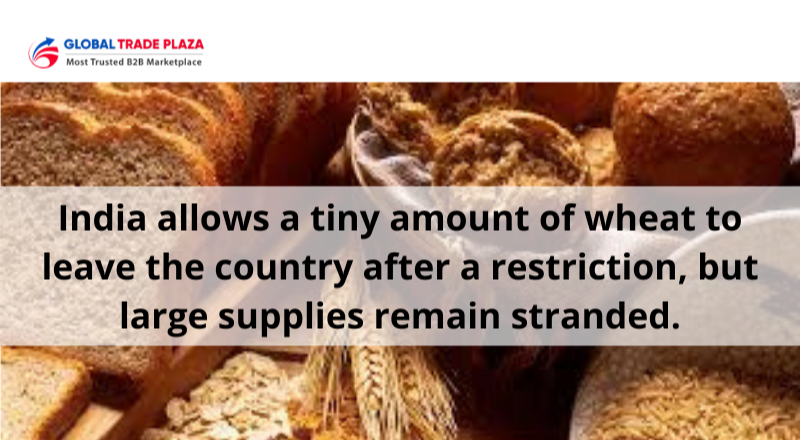India allows a tiny amount of wheat to leave the country after a restriction, but large supplies remain stranded.
- Date posted : June 07, 2022

Since restricting exports last month, India has authorised 469,202 tonnes of wheat shipments, but at least 1.7 million tonnes are sitting at ports, potentially destroyed by approaching monsoon rains, government and industry officials told Reuters.
According to a senior government official, the approved shipments went primarily to Bangladesh, the Philippines, Tanzania, and Malaysia, with the total quantity unknown.
The embargo reduced Indian wheat shipments to 1.13 million tonnes in May, down from a high of 1.46 million tonnes in April, according to the official, who did not want to be identified.
On May 14, India, the world's second-largest wheat producer, announced a blanket export restriction after a blistering heat wave reduced output and pushed local prices to new highs.
Shipments secured by letters of credit that had already been provided, as well as those to countries that requested supplies to meet their food security needs, were exempted.
However, three dealers with global trading organisations told Reuters that even after some wheat had left, at least 1.7 million tonnes remained heaped up at several ports.
Exporters transferred unusually large supplies to ports prior to the embargo since the harvest was believed to be good at the time, and the government encouraged them to replace Black Sea supply lost due to the Ukraine conflict.
They predicted that New Delhi would approve shipments of 8 million to 10 million tonnes or even more this year, up from 7.2 million tonnes last year.
Wheat stocks are at their highest in Kandla and Mundra ports, according to a Mumbai-based dealer with a worldwide trading firm.
"They hold more than 1.3 million tonnes together."
According to a New Delhi-based dealer with a worldwide trading firm, the government wanted to grant export permits quickly since wheat at the ports was in loose shape and thus vulnerable to monsoon rains.
During the monsoon season, which lasts from June to September, India receives a lot of rain.
"The government banned wheat exports to maintain food security," the merchant explained, "but if reserves are damaged by rains, it will be useless."
The Mumbai-based dealer explained that moving the wheat back out of ports and into interior towns for local consumption was impossible since dealers would lose money on loading and transportation expenses.
"For government-to-government negotiations, the government should authorise exports of wheat lying at ports," he said.
Several countries in need of wheat have approached India with demands for more than 1.5 million tonnes.










Leave a comment